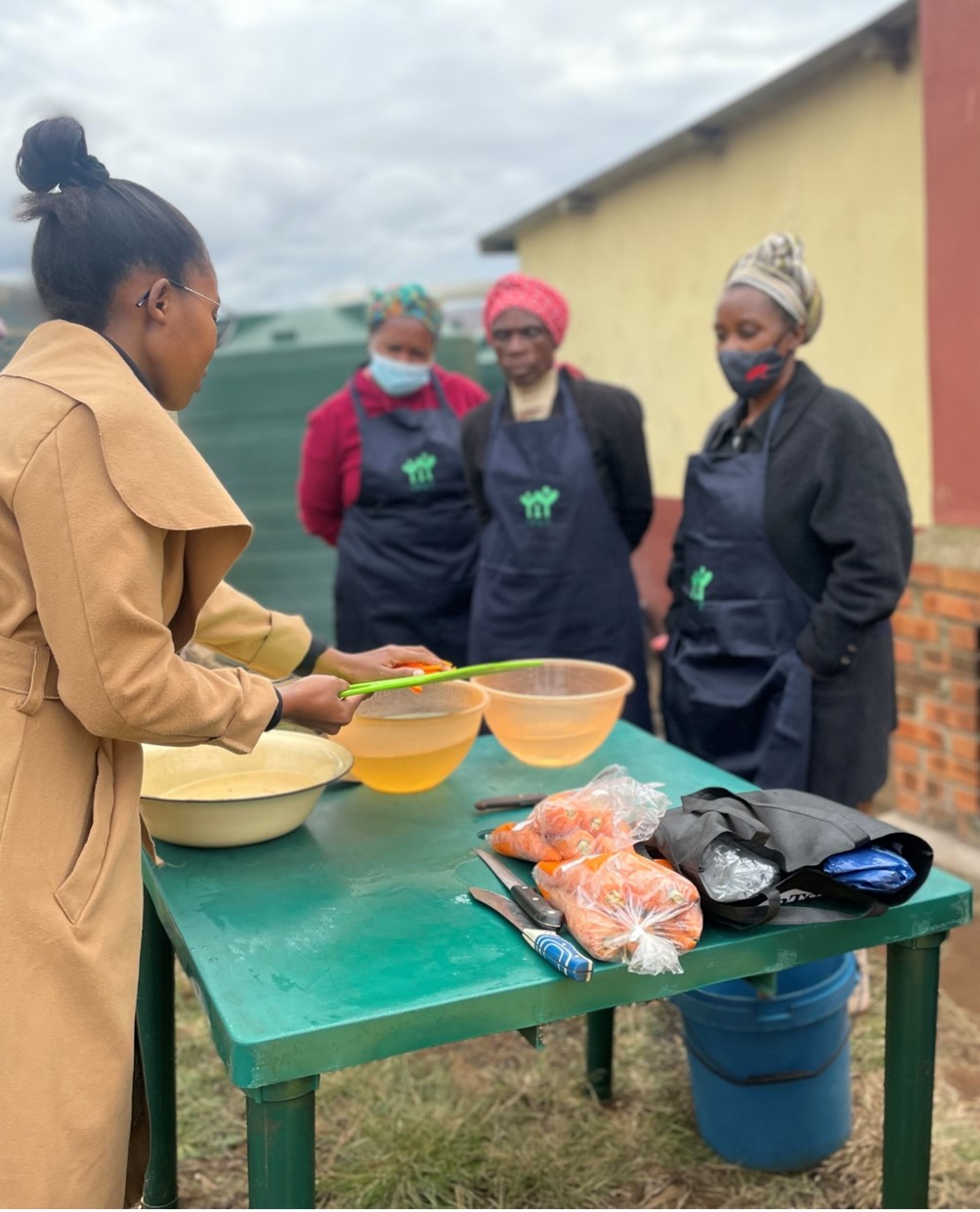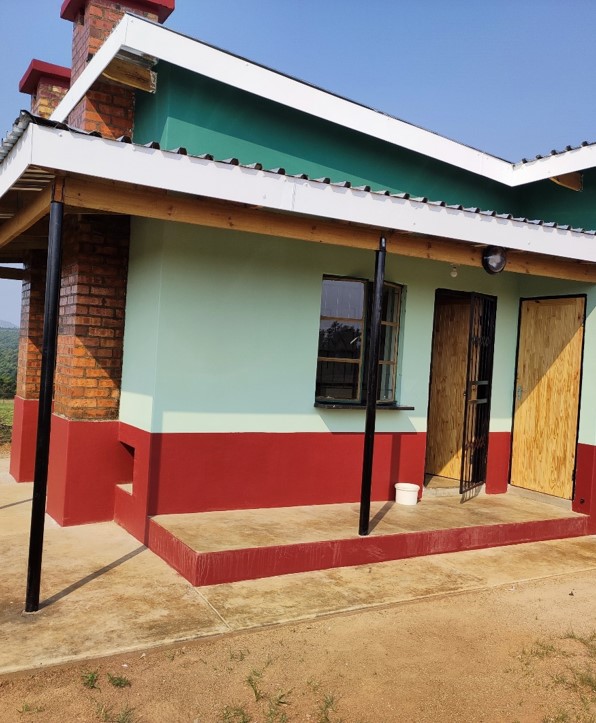Cultivating in Eswatini: A 10-Year Journey of Service
.jpg)
In July 2013, Taiwan Fund for Children and Families Eswatini branch office (referred to as the TFCF Eswatini) officially obtained operational permission locally. A decade has passed in the blink of an eye, and at this momentous juncture, TFCF Eswatini held a seminar on July 14. This event not only reflected on the fruitful service achievements of the past 10 years but also invited local organizations to join hands in advocating for the rights of Eswatini's children and contributing to community development. TFCF Eswatini collaborates with nearly 50 local units, currently assisting approximately 6,100 children. Initially focused on meeting children's basic needs, the service scope has broadened in recent years, developing diverse programs around the concept of "empowerment." This approach allows communities and beneficiaries to explore their potential, fostering diverse capabilities to give back to the community.
Eswatini has one of the highest HIV prevalence rates globally, with a significant number of middle-aged individuals succumbing to early death, leaving many children orphaned at a young age. Compassionate local mothers spontaneously care for these orphans, providing meals using their own resources. Influenced by societal changes and widespread poverty, such acts of kindness have gradually become more common. Communities have established "Neighborhood Care Points" (NCP), extending care not only to orphaned children but also to children from impoverished families.
Due to the increasing number of beneficiaries, NCPs, with limited resources, face many difficulties and challenges. Recognizing this, TFCF Eswatini locally adopted a "community collaboration" approach. This ensures that community kitchens have sufficient funds and resources to provide meals, helping vulnerable children have at least one nutritious meal a day. During the collaboration, we observed a lack of community infrastructure adversely affecting the stability of community meals. Many communities, lacking proper kitchens, resort to outdoor cooking, making it impossible during rainy days. Additionally, maintaining cleanliness in community kitchens becomes challenging due to limited access to water resources.


To improve the stability of meal provision, over the past 10 years, we have assisted 14 collaborating units in constructing community kitchens. There have also been over 50 kitchen repair projects, providing community mothers with a clean and friendly space for meal preparation. Simultaneously, we assisted 16 communities in setting up water stations, not only aiding the operation of community kitchens but also benefiting nearby residents, effectively enhancing the overall water resources and hygiene of the community.
As Eswatini is an agricultural society, we considered alternative ways to reduce the expenditure on purchasing food. After assessing community capital and overall conditions, we introduced community farms in five communities. Local agricultural experts were hired as consultants to identify crops suitable for the farm soil, teaching community mothers relevant cultivation techniques. After harvesting, crops can be directly sent to community kitchens. Besides reducing the cost of purchasing vegetables, this approach embodies "from farm to table" food education. Community farms also regularly invite community children to maintain the farm and care for vegetables, instilling a sense of personal responsibility and appreciation for food.
In recent years, with the assistance of agricultural consultants, the yield of some community farms has significantly increased. In addition to meeting the needs of community kitchens, surplus vegetables are distributed to vulnerable families or other communities, creating a cycle of mutual assistance.
The consultant also continues to teach knowledge and techniques for seedling cultivation to reduce the cost of purchasing seedlings. These seedlings, besides being planted directly in community farms, can be sold to expand the funding sources of community kitchens. Community 306, in collaboration with a national association, learned strawberry cultivation techniques. After harvest, local chain supermarkets directly purchase the strawberries. This not only improves the economic situation of some impoverished families but also contributes part of the income back to community kitchens, benefiting more community children.
After gradually improving community infrastructure, TFCF Eswatini began shifting its service focus to various "empowerment programs." In the local context, limited resources mean that many students rarely have the opportunity to receive a complete education, resulting in self-doubt and a loss of direction in life.
We hope that all young people can discover their capabilities and face future challenges confidently. To achieve this, TFCF Eswatini has designed programs such as soccer teams, dance classes, language courses, youth empowerment, and youth construction. These not only enrich the life experiences of young people but, more importantly, allow them to see themselves in a series of group activities, realizing their unique abilities and creating a grander future.
For example, in language classes, three program members have already received scholarships to study at Tunghai University in Taiwan. The soccer team has several young members who have caught the attention of local teams in Eswatini and may have the opportunity to further develop into professional football players. We have observed that program members not only become more confident than before but, more importantly, they begin to harbor hope for the future, believing that they also can do something, further improving their family situations or realizing their dreams.

Over the past decade, we have continuously adjusted services to meet the needs of local children, families, and communities, satisfying various basic developmental needs. The most challenging aspect of this work has been conceptual cultivation. As it is cross-cultural work, we need to spend a lot of time on adaptation and communication, especially emphasizing the concepts of "time" and "planning," which are not highly valued locally due to the numerous uncertainties.
While we understand the local cultural context, these concepts are crucial for service expansion, helping children and young people develop a sense of responsibility. Through TFCF Eswatini's long-term efforts, children and young people gradually understand how to take responsibility, and community mothers begin to appreciate the importance of planning. It is no longer just about "cooking as much food as there is ingredients," but rather thoroughly estimating the actual number of diners before cooking. Community mothers also learn cost control, expecting to maximize the benefits of each donation.
There is a saying, "It takes a village to raise a child." Looking back on the achievements of the past ten years, we are delighted to see the tremendous changes brought to local communities by overseas aid work. We are also very encouraged to see children growing in all aspects of their lives, with smiles on their faces more confident than ever.
We look forward to the TFCF Eswatini continuing to exert influence locally in the next decade, bringing more positive changes to the local community and enhancing the well-being of more children, families, and communities!
